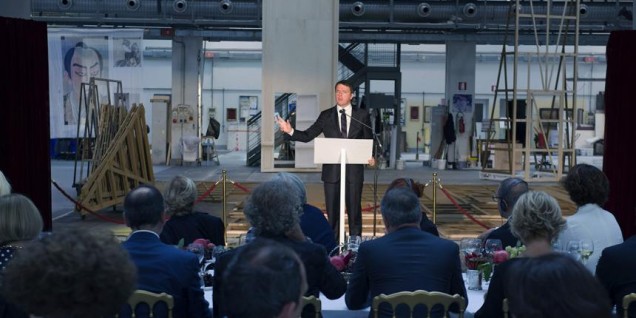Italian Prime Minister Matteo Renzi presented the national Industry 4.0 plan in Milan today, with the goal of pushing the country’s manufacturing sector to fully embrace the digitization and application of information networks to production. The concept of “Industry 4.0” was conceived in Germany last year as a means of encouraging the use of the latest technological developments to make economic activity more efficient: for example, through the use of a new generation of machines that are interconnected and able to eliminate waste and thus maximize output.
At an event at the Science and Technology Museum in Milan, which houses exhibits on both the industrial history of the past two centuries and the revolutionary concepts of Leonardo da Vinci from 500 years ago, Renzi and Carlo Calenda, the Minister for Economic Development, who has been working to encourage digital platforms for Italian manufacturing, spoke of the need to go beyond current limits, and initiate a process of modernization that will benefit the country as a whole.
An example of the digital revolution in factories is the connection of robots and workstations in a network which allows for the monitoring of efficiency, performing timely maintenance, and preventing breakages. The concept also extends to the use of new technologies such as digital printing of components for repairs, and the efficiency of supply networks on a trans-oceanic scale.
One of the interesting side effects of the digital revolution is its potential to encourage onshoring, i.e. the reversal of the outsourcing trend which saw many industries move production to cheap-labor countries. With higher technology and new-generation robotics applied to production processes, not only does the incidence of labor costs decrease, but more highly-skilled workers are needed to manage advanced processes and continue work on innovations for “smart factories.”







September 21, 2016
English, Notizie